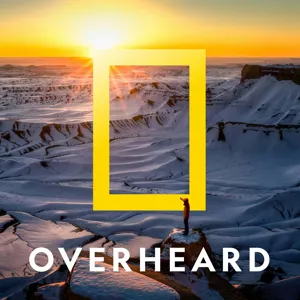Black Hole Theory Cosmology (WHAT ARE BLACK HOLES?!) Part 2 with Ronald Gamble, Jr.

Part 2! Black hole suns, black hole movies, wormholes, time travel, matter evaporation, scientists being bitches, risk-taking advice, Italy’s favorite pastry, and more await you. NASA Goddard Theoretical Astrophysicist and Black Hole Theory Cosmologist Dr. Ronald Gamble, Jr. is back for the conclusion of black hole basics and how theories get made and what’s on the (event) horizon for future astrophysicists to solve. Also: what do we do with our space anxiety?!
Visit Dr. Ronald Gamble’s website and follow him on Instagram, X, and Google Scholar
Donations went to TheScienceHaven.org
More episode sources and links
Smologies (short, classroom-safe) episodes
Other episodes you may enjoy: Scotohylology (DARK MATTER), Cosmology (THE UNIVERSE), Quantum Ontology (WHAT IS REAL?), UFOlogy (UNEXPLAINED AERIAL PHENOMENA), Astrobiology (ALIENS), Abstract Mathematology (UH, IS MATH REAL?), Futurology (THE FUTURE), Eschatology (THE APOCALYPSE), Radiology (X-RAY VISION), Invisible Photology (INVISIBILITY CLOAKS), Molecular Biology (PROTEINS)
Transcripts and bleeped episodes
Become a patron of Ologies for as little as a buck a month
OlogiesMerch.com has hats, shirts, hoodies, totes!
Follow @Ologies on Instagram and X
Follow @AlieWard on Instagram and X
Editing by Mercedes Maitland of Maitland Audio Productions
Managing Director: Susan Hale
Scheduling producer: Noel Dilworth
Transcripts by Aveline Malek and The Wordary
Website by Kelly R. Dwyer
Theme song by Nick Thorburn









